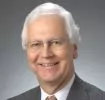We wrote earlier this week about the new opinion drafting procedure in Wisconsin's supreme court. To recap, the state's justices voted 4-3 earlier this term to impose deadlines on the drafting process, presumably in response to the recent trend in which most of the court's work has been released in the final weeks of its term.
We also noted that Chief Justice Abrahamson and Justice Bradley have been critical of the new procedure's effect on separate writings, claiming that the inflexible deadlines kept the court from harmonizing its views in related cases. We thought that that problem perhaps could have been solved by assigning similar cases, especially if argued on the same day, to one justice—instead of, as it happened the other day, assigning three cases on closely related issues to three different justices under the court's quirky "poker chip" assignment system.
Apparently the debate continues. In the two opinions issued today, Preisler v. Kuettel's Septic Service, 2014 WI 135, and Wilson Mutual Ins. Co. v. Falk, 2014 WI 136, both on the general subject of whether manure or septage spread on a farm field falls within the "pollutant" exception to CGL coverage, and (one assumes) argued on the same day for that reason, Justices Roggensack and Gableman wrote separate majority opinions. And Justice Bradley concurring and the Chief Justice dissenting pointed out that (in their views) there are inconsistencies in the opinions, leading to confusion in the law. The Chief Justice, in the last paragraph of her Wilson Mutual dissent, blames the new procedure for those faults.
We suggest again that the poker chip rule seems to be the real source of the problem. Instead of spending a lot of effort by all the justices in conference, trying to harmonize two or three opinions on closely related issues, why not consolidate the cases for treatment before the poker chip is drawn? Just asking.
The content of this article is intended to provide a general guide to the subject matter. Specialist advice should be sought about your specific circumstances.

